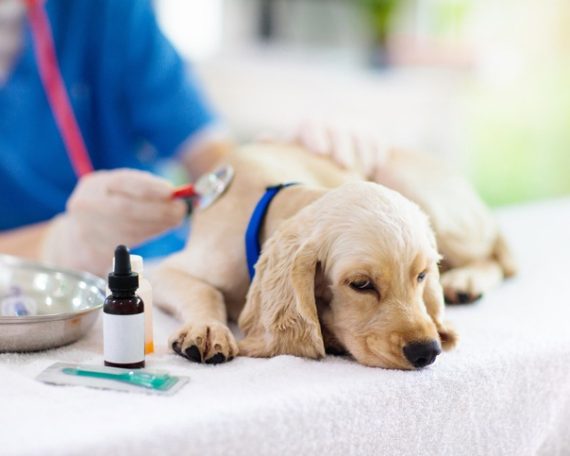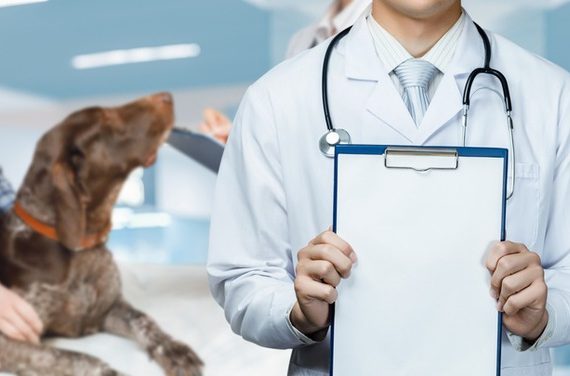How Veterinary Diagnostic Labs Contribute to Veterinary Medicine
Veterinary medicine has made great strides in helping our pets live longer, healthier lives. One major factor driving this progress is the role of veterinary diagnostic labs. These labs are essential in identifying health issues, providing accurate diagnoses, and guiding treatment plans. They serve as the backbone of veterinary healthcare, ensuring veterinarians have the information to keep animals healthy. In this article, we’ll explore how veterinary diagnostic labs contribute to modern veterinary medicine and why they are so vital to the overall care of animals.
The Role of Veterinary Diagnostic Labs in Veterinary Medicine
Veterinary diagnostic labs are crucial in veterinary medicine because they allow for early detection, diagnosis, and management of animal health conditions. By analyzing blood, tissue samples, and other data, these labs provide veterinarians with insights that help them create accurate treatment plans. This ensures that animals receive the care they need as soon as possible.
1. Early Detection of Diseases
One of the most critical functions of veterinary diagnostic labs is early detection. Regular testing can identify health problems before they become severe. For example, blood tests can reveal kidney disease, infections, or even cancer in its early stages. This early detection can be life-saving, as it allows veterinarians to intervene sooner and prevent the progression of serious illnesses.
2. Accurate Diagnosis
When pets show symptoms of illness, it can be challenging to determine the exact cause without further investigation. Veterinary diagnostic labs use advanced tools and tests to identify the underlying issues. These labs ‘ precise diagnosis is crucial in developing effective treatment strategies, whether it’s a specific infection, hormonal imbalance, or another health concern.
3. Monitoring Chronic Conditions
For pets with chronic conditions like diabetes or kidney disease, ongoing monitoring is essential. Diagnostic labs allow veterinarians to track how well treatment plans work and adjust when necessary. This ensures that pets with long-term illnesses maintain the best possible quality of life.
How Diagnostic Labs Guide Veterinary Treatment Plans
Veterinary diagnostic labs not only provide answers but also guide the treatment process. By delivering test results, these labs help veterinarians tailor care to each animal’s needs. This personalized approach leads to better outcomes and more effective treatments.
Personalized Treatment for Pets
Each pet is unique, and their health needs can vary. Diagnostic labs offer detailed information that helps veterinarians create custom treatment plans based on an animal’s specific condition. Whether adjusting medication dosages or recommending further tests, the insights gained from these labs enable veterinarians to make informed decisions.
Providing Support for Specialized Care
In addition to general health monitoring, diagnostic labs also play a role in more specialized areas of veterinary medicine. For example, a cat physical therapy regimen might be adjusted based on lab results, ensuring the therapy is safe and beneficial for the pet’s condition. By combining lab data with treatment, veterinarians can offer comprehensive care that addresses all aspects of an animal’s health.
The Impact of Advanced Diagnostic Tools
Veterinary diagnostic labs use advanced technology, from blood analyzers to imaging devices, to provide accurate and detailed information. These tools allow veterinarians to offer cutting-edge care, improving pets’ overall health outcomes.
The Importance of Imaging in Diagnostics
Sometimes, more than traditional tests may be needed to identify certain conditions. Imaging techniques like cat CT scan in Springfield, VA, are valuable tools that allow veterinarians to understand what’s happening inside an animal’s body. These scans can detect internal injuries, tumors, or structural abnormalities that may not appear in standard lab tests.
Molecular Diagnostics and Genetics
Modern diagnostic labs are also beginning to incorporate molecular diagnostics and genetics into their services. This allows veterinarians to understand an animal’s health more deeply, offering insights into hereditary conditions or genetic predispositions. With this knowledge, veterinarians can take preventative measures or create targeted treatment plans for pets at risk for certain conditions.
Veterinary Diagnostic Labs and the Well-Being of Pets
Veterinary diagnostic labs aren’t just about treating illness but also about maintaining wellness. Routine check-ups and tests ensure that animals stay healthy and help catch potential issues early.
Routine Testing for a Healthier Life
Regular health check-ups are important for pets, even when they appear healthy. Diagnostic tests such as blood panels, urinalysis, and other screenings help veterinarians ensure everything functions properly. This proactive approach means we can catch potential health issues before they become serious problems.
Peace of Mind for Pet Owners
Knowing that Springfield veterinary laboratory services are available gives pet owners peace of mind. Access to accurate diagnostic information means we can trust that our pets receive the best care possible. Whether for routine testing or a more serious health concern, knowing that veterinary diagnostic labs support our pets’ health makes all the difference.
Modern Labs: Supporting the Future of Veterinary Medicine
Veterinary diagnostic labs will continue to play a vital role in the future of animal healthcare. As technology advances, these labs can provide even more detailed information, leading to quicker diagnoses and more effective treatments. This ongoing development in veterinary diagnostics will contribute to healthier, longer lives for our pets.
Adapting to New Challenges in Veterinary Medicine
With the rise of new diseases and health challenges, the need for advanced diagnostic capabilities has never been greater. Veterinary diagnostic labs are evolving to meet these demands, offering innovative solutions that help veterinarians tackle complex health issues. Whether through improved testing methods or access to cutting-edge research, diagnostic labs are at the forefront of veterinary care.
Enhancing Preventative Care
Preventative care is becoming an increasingly important aspect of veterinary medicine, and diagnostic labs are central to this shift. With routine testing and monitoring, veterinarians can catch potential problems early before they become major health concerns. This focus on prevention will help pets live longer, healthier lives.
Wrapping Up
Veterinary diagnostic labs are essential to modern veterinary medicine, contributing to everything from early disease detection to specialized care. They help ensure that pets receive accurate diagnoses, personalized treatment, and continuous monitoring. As veterinary medicine advances, diagnostic labs will remain a cornerstone of animal healthcare, offering invaluable support to veterinarians and pet owners.











